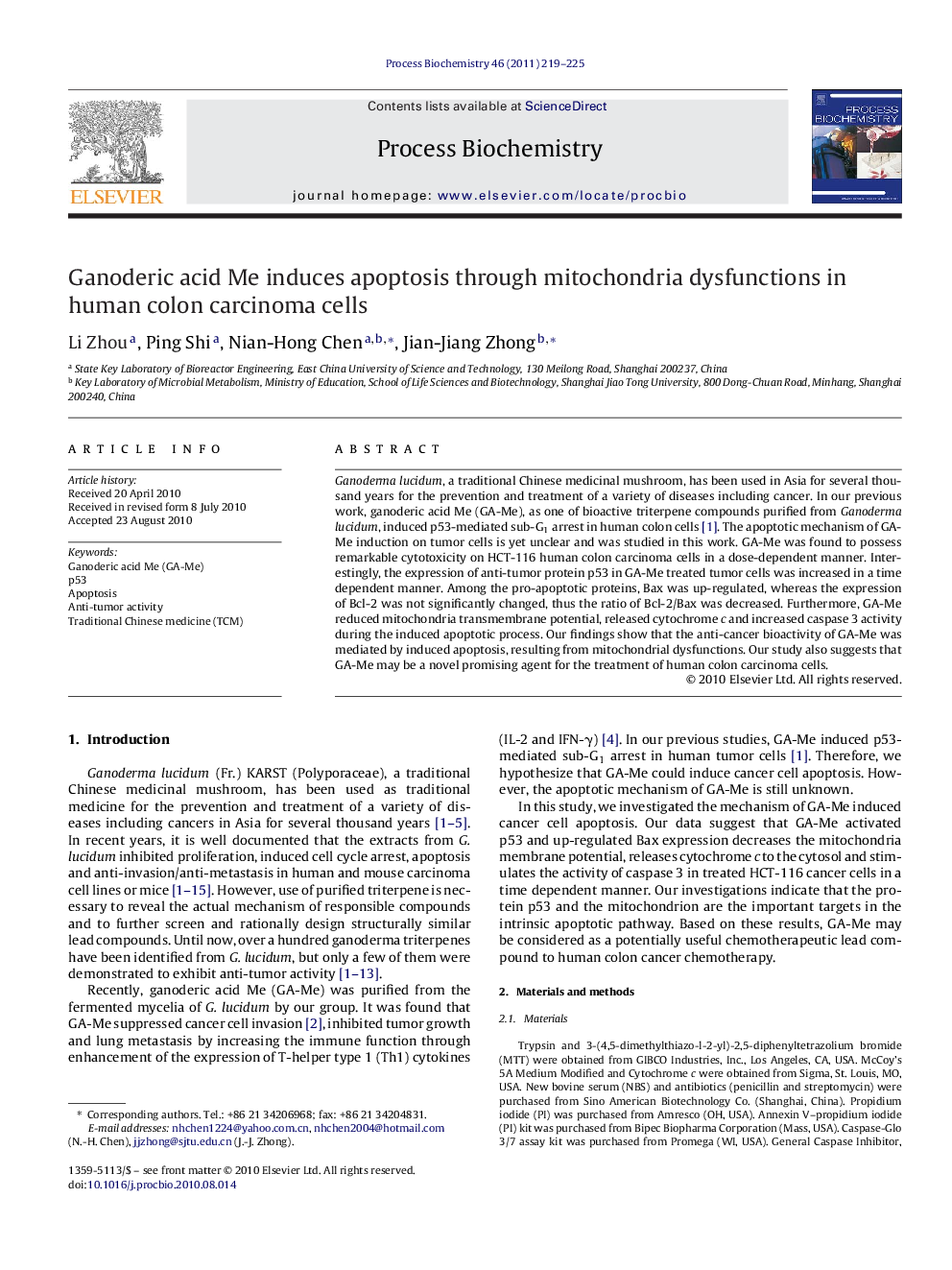| Article ID | Journal | Published Year | Pages | File Type |
|---|---|---|---|---|
| 35378 | Process Biochemistry | 2011 | 7 Pages |
Ganoderma lucidum, a traditional Chinese medicinal mushroom, has been used in Asia for several thousand years for the prevention and treatment of a variety of diseases including cancer. In our previous work, ganoderic acid Me (GA-Me), as one of bioactive triterpene compounds purified from Ganoderma lucidum, induced p53-mediated sub-G1 arrest in human colon cells [1]. The apoptotic mechanism of GA-Me induction on tumor cells is yet unclear and was studied in this work. GA-Me was found to possess remarkable cytotoxicity on HCT-116 human colon carcinoma cells in a dose-dependent manner. Interestingly, the expression of anti-tumor protein p53 in GA-Me treated tumor cells was increased in a time dependent manner. Among the pro-apoptotic proteins, Bax was up-regulated, whereas the expression of Bcl-2 was not significantly changed, thus the ratio of Bcl-2/Bax was decreased. Furthermore, GA-Me reduced mitochondria transmembrane potential, released cytochrome c and increased caspase 3 activity during the induced apoptotic process. Our findings show that the anti-cancer bioactivity of GA-Me was mediated by induced apoptosis, resulting from mitochondrial dysfunctions. Our study also suggests that GA-Me may be a novel promising agent for the treatment of human colon carcinoma cells.
